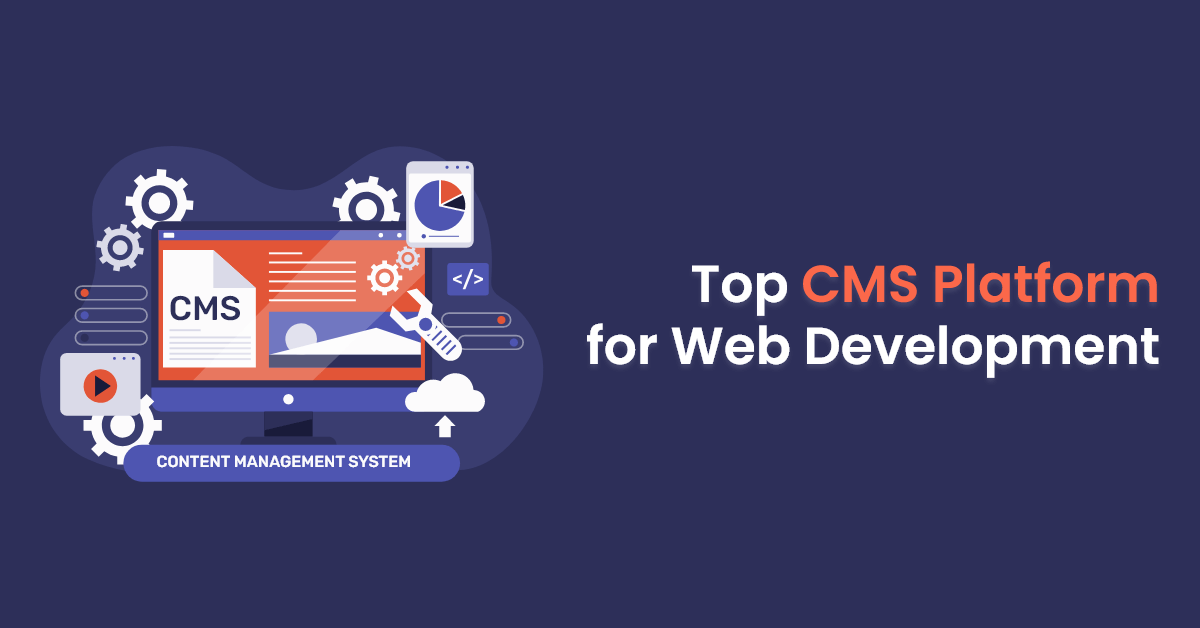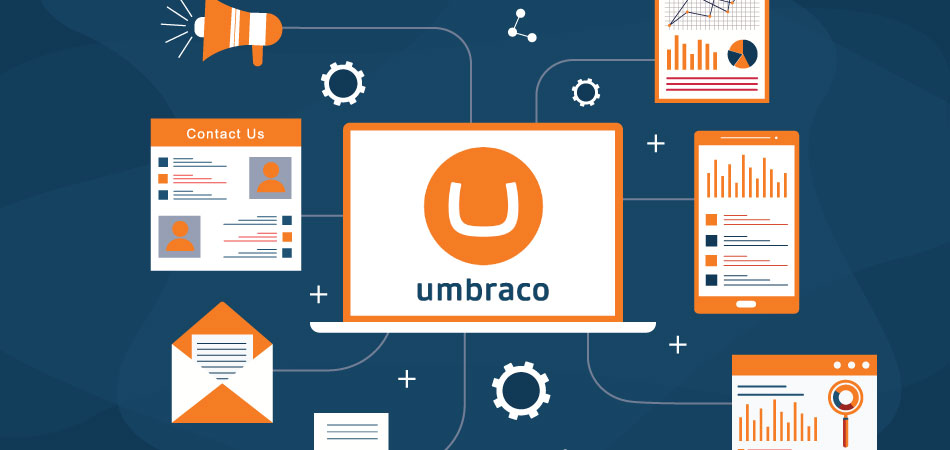The creation of an autonomous website depends heavily on the Content Management System, which is a software program that users are free to use. With the use of software, consumers may generate, maintain, and edit website content without the need for technical expertise thanks to content management systems. Robust support, versatility, and ease of content generation are the three things that make a CMS perfect for your company.
Advantages of CMS
- Easy to use, rapidly deployable, and easily maintained, including with upgrades.
- Cost-effectiveness, particularly when utilizing open-source or freeware solutions.
- Expandable features, achievable with an abundance of plugins and extensions.
- Feature-rich for search engines.
- Support from developers and the community.
There are lots of CMS Platforms for the users and the top listed CMS is being used to modify the website.
Here are Some Top Listed Content Management Systems
- WordPress
- Shopify
- Magento
- PrestaShop
- Concrete5
- Contentful
- Appy Pie Website Builder
- Sitecore
- Umbraco
- Hubspot CMS
1. WordPress

Originally developed as a blogging platform, WordPress has grown to become the most widely used content management system ever. The open-source platform is widely utilized in publishing and blog-friendly businesses because of its emphasis on editorial capabilities such as posting articles and blogs.
With almost 53.2% of all websites using it, WordPress is the most widely used content management system. Open-source WordPress software is renowned for its adaptability and scalability. Its collection of more than 58,000 WordPress plugins also enables users to build any kind of website.
Important Characteristics of WordPress:
- User management: designate roles and permissions for various.
- Media management: To enhance SEO, add captions and alt text to photos when inserted.
- Integrated comments: enable users to leave comments on posts and pages.
Advantages of WordPress:
- The price is negotiable based on needs and financial constraints.
- Customize with a huge selection of excellent plugins and free WordPress themes.
Disadvantages of WordPress:
- Not every WordPress theme and plugin is dependable or of excellent quality.
- Lacks direct client service. Rather, it mainly depends on guides, forums, and documentation.
Price:
A domain name and web hosting account are required to utilize the free WordPress software. Certain hosting providers offer a single plan that includes both features, like hosting er’s Managed WordPress Hosting:
- The monthly cost of a premium hosting package is $2.99.
- The monthly cost of the business hosting package is $3.99.
- The monthly cost of cloud startup hosting is $9.99.
2. Shopify
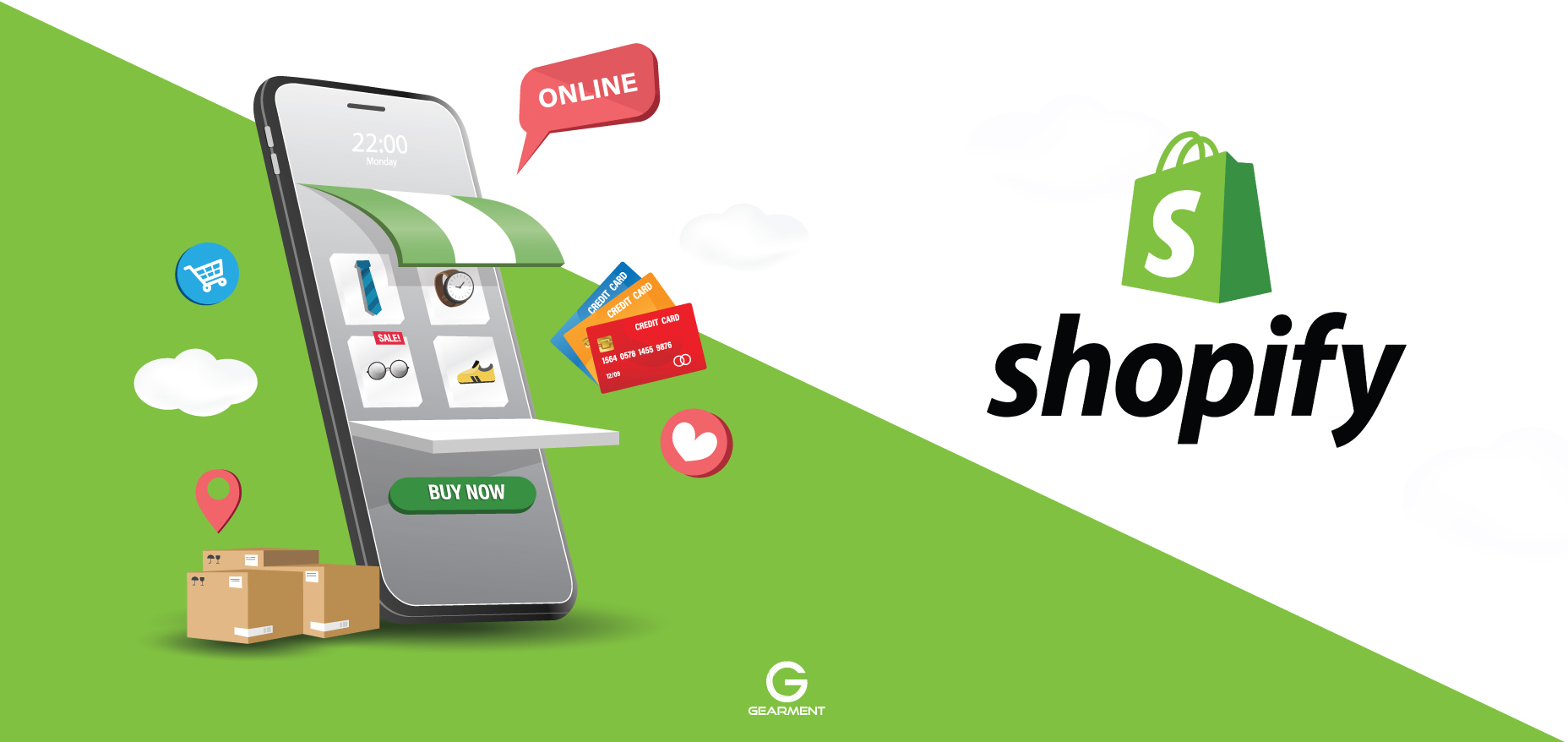
Shopify is a hosted e-commerce platform that allows online merchants to create and oversee a whole store. Shopify is a premium platform with three proprietary options.
Important Characteristics of Shopify:
- SEO resources. Improve URLs and enhance web pages using metadata.
- Clever caching. The cache will be automatically updated by the system.
- Multiple Sites. Manage many websites with a single account.
Advantages of Shopify:
- Easy to use
- Customizable
- Good security
Disadvantages of Shopify:
- Perfect for new store owners
- Restricted options for themes and apps
- Manages software updates and backups for you
Price:
A Shopify subdomain (yourname.shopify.com), site hosting, and SSL certification are all included in the $29 monthly options offered by Shopify.
- You can upgrade to “Shopify” for $79 a month
- You can upgrade to “Advanced Shopify” for $299 per month
- Average Cost: Monthly Plans at $29, $79, and $299
3. Magento

Among the top eCommerce platforms available is Magento. To improve all kinds of eCommerce sites, the CMS software prioritizes security, SEO, and personalization. Because it serves larger e-commerce sites, the platform has sufficient power to handle a large volume of orders and products.
Important Characteristics of Magento:
- Safe payment gateway with Cybersource and Worldpay integrated.
- Touch-sensitive elements. Editing is made simpler by the touch sensitivity of the back-end admin dashboard.
- Handling of catalogues. Using inventory management, showcase products virtually with real-time product development and dynamic pricing.
Advantages of Magento:
- Oversee several stores at diverse locations while utilizing distinct currencies and languages.
- Mobile devices can be used for content management.
Disadvantages of Magento:
- Intricate initial configuration.
- It takes time to list products and customize the design.
Price:
The three versions of Magento have an impact on the platform’s cost. Although the Magento Open Source platform is free, it needs a bespoke domain and web hosting. Magento is suggested to use the VPS hosting options offered by Hostinger:
- Level 1: $4.99 Per Month.
- Level 2: $7.99 Per Month.
- Level 3: $11.99 Per Month
- Level 3: $16.99 Per Month
4. PrestaShop
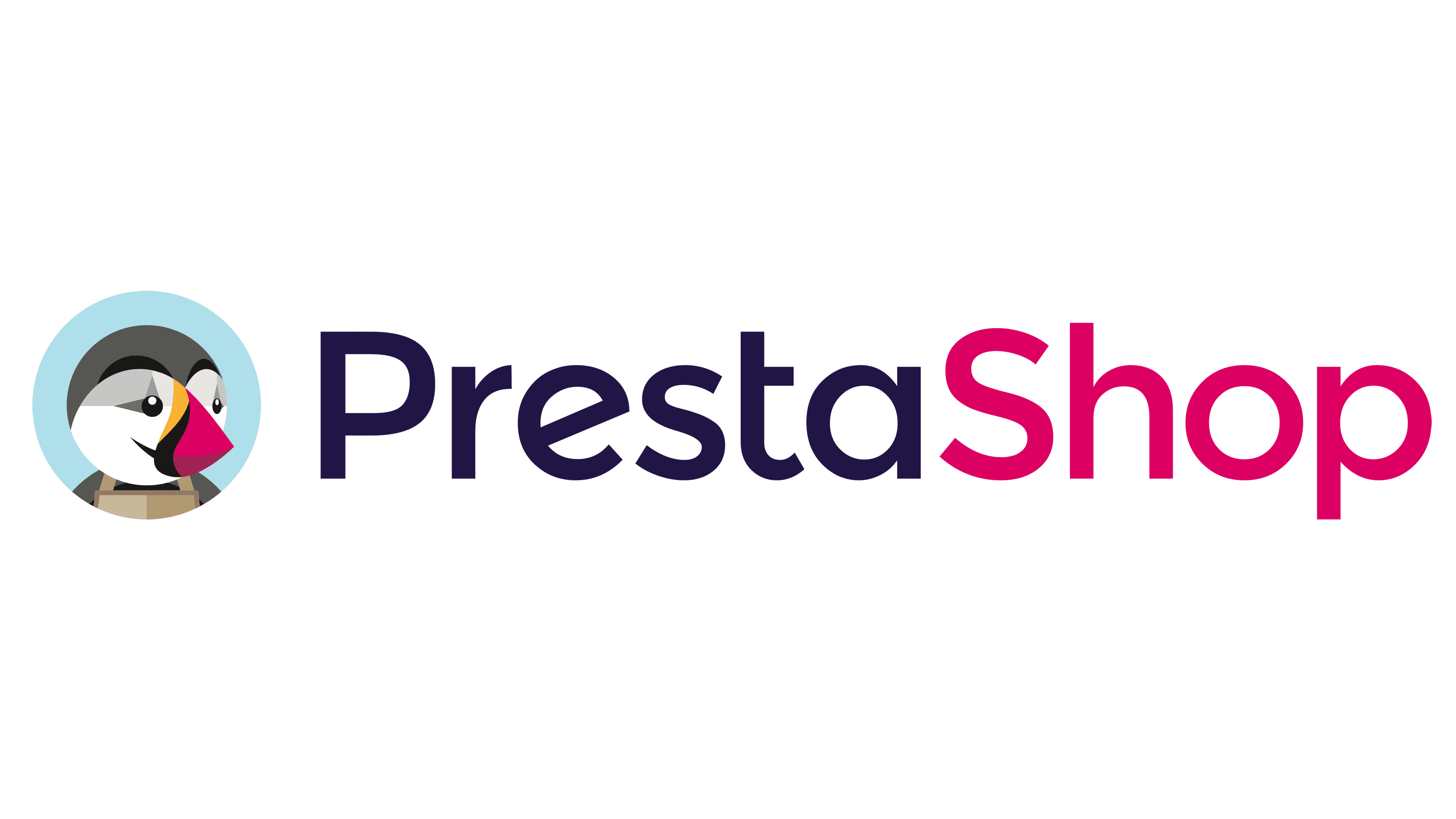
Another well-liked CMS option for tiny to medium-sized e-commerce companies is PrestaShop. It is an extremely versatile online store management platform because of its large feature set and vibrant community. Its user-friendly interface facilitates the easy entry and monitoring of products.
Important Characteristics of PrestaShop:
- To optimize content, take control of URLs, Meta descriptions, and titles.
- Options for payments. A wide range of payment methods is available, such as offline processing, PayPal, Skrill, Stripe, and WorldPay.
- Management of multiple stores. Oversee several stores that have similar parts and functions.
Advantages of PrestaShop:
- All skill levels can develop a professional online store with easy-to-use eCommerce tools.
- A wide range of modules and themes are available for customization.
Disadvantages of PrestaShop:
- Unable to expand into a larger online retailer.
- Depends on expensive addons and plugins.
Price:
Although the PrestaShop software is free, a domain name and hosting are still required. This is our hosting package for PrestaShop, which includes both:
- Company for $3.99 a month.
- Start your cloud for $9.99 a month.
- Professional Cloud for $14.99 a month.
5. Concrete5
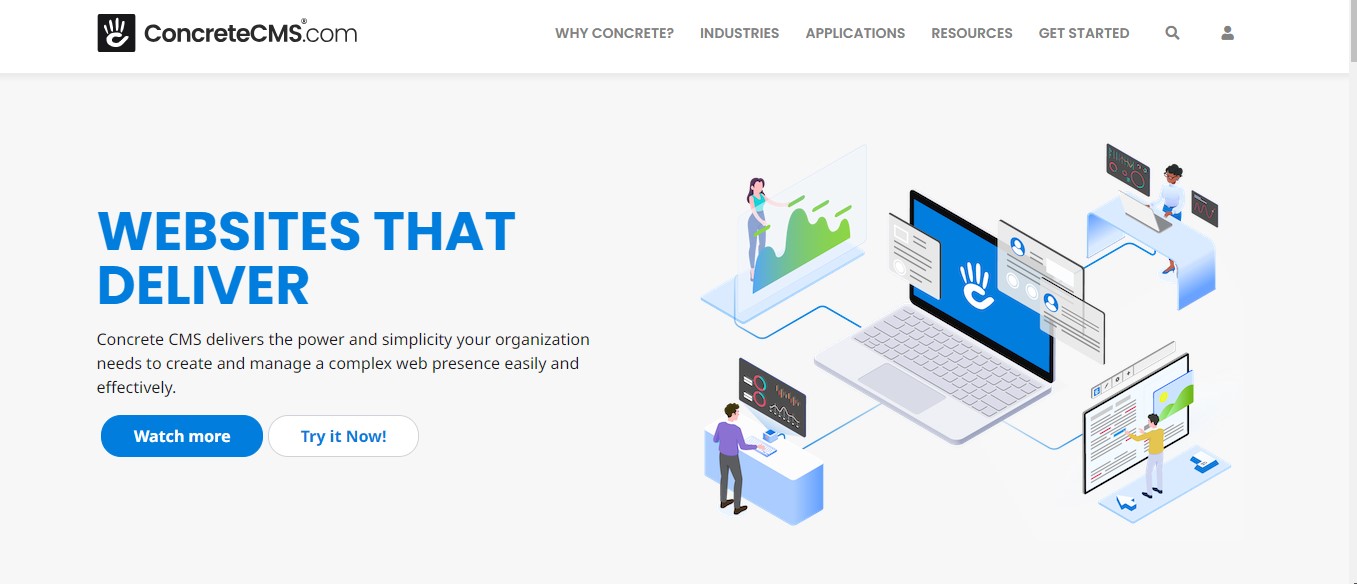
Open-source Concrete5 software is intended for people with no technical experience. Drag-and-drop content blocks are one of its features that make content administration and modification easier. It’s also a fantastic CMS for websites with several developers because of its safe user management.
Important Characteristics of Concrete5:
- Responsive design. Every Concrete5 website functions uniformly across various devices.
- Promotional instruments. To grow a brand, add social media accounts on Facebook, Instagram, LinkedIn, Twitter, and other platforms.
- To protect a website, use an SSL, audit trails, content approval, captcha, and email verification.
Advantages of Concrete5:
- A style editor that is both flexible and easy to use.
- Built-in SEO capabilities, like sitemap creation and Meta description addition.
Disadvantages of Concrete5:
- Neither documentation nor a developer community.
- It does not automatically save when editing.
Price:
- The monthly cost of self-service hosting is $2.78.
6. Contentful
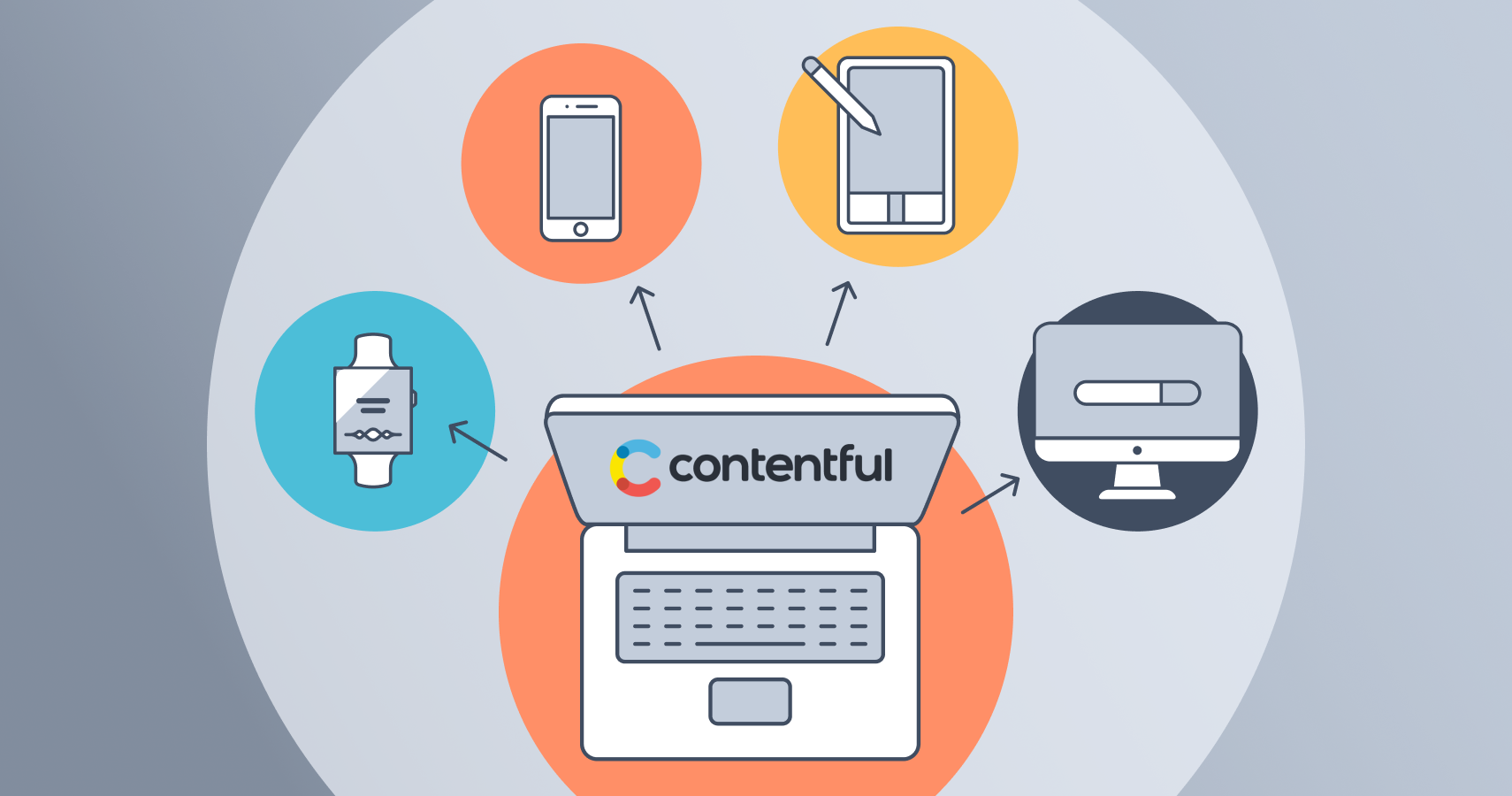
For enterprise businesses, Contentful is a headless CMS that runs in the cloud. Contentful gives organizations the ability to produce, update, and manage their digital content in one location and distribute it to any digital channel with tools for doing so as well as an API for sending it.
Important Characteristics of Contentful:
- Administration of users. To generate content with a single account, invite more people and give roles.
- Modelling of content. To arrange the various content kinds such as text or images use fields.
Advantages of Contentful:
- Adaptable to mobile apps and online browsers on all digital platforms.
- Adaptable to various kinds of content.
Disadvantages of Contentful:
- Don’t change the layout; instead, concentrate on the back end.
- Technical expertise is needed to create content on many platforms.
Price:
Three pricing tiers are available for Contentful:
- Free tier,
- Team tier starting at $489 per month
- Enterprise tier for businesses.
7. Appy Pie Website Builder

App architecture. To maximize features and tools, incorporate extra Contentful apps and outside cloud software with the help of the user-friendly Appy Pie Website Builder, you can build your website without needing any technical knowledge. With the platform’s easy-to-use drag-and-drop interface, you can quickly add material, change the appearance, and incorporate features like social networks, contacts, images, and videos.
Important characteristics of Apply Pie Website Builder:
- Many payment methods. Using a variety of payment methods, such as Stripe, PayPal, credit cards, etc., accept payments in many currencies.
- Offline qualities. Get content even when you’re not connected.
- Updates in real-time. Make real-time edits to your website from anywhere, at any time.
- Since all of the websites are sent via HTTPS, you are safe from online attacks and security lapses.
Advantages of Apply Pie Website Builder:
- Using AI, you can easily turn your words into a website with all the features it needs.
- Take advantage of a full plan that includes a free domain, corporate email, Google Workspace, and a mobile app for $18 per month.
- Excellent customer service is provided to users via email and live chat, guaranteeing timely assistance.
- There are special savings available for government agencies, NGOs, schools, and EDUs.
Disadvantages of Apply Pie Website Builder:
- Sometimes people find it difficult to obtain desired or relevant website designs for their business due to limited templates.
- Limited scalability might cause problems for companies managing complicated projects.
Price:
In contrast to its rivals, Appy Pie Website Builder provides a very affordable website purchase service:
- Starter pack available for $18 per month for people interested in personal projects
- Premium plan for businesses at $36 per month.
8. Sitecore
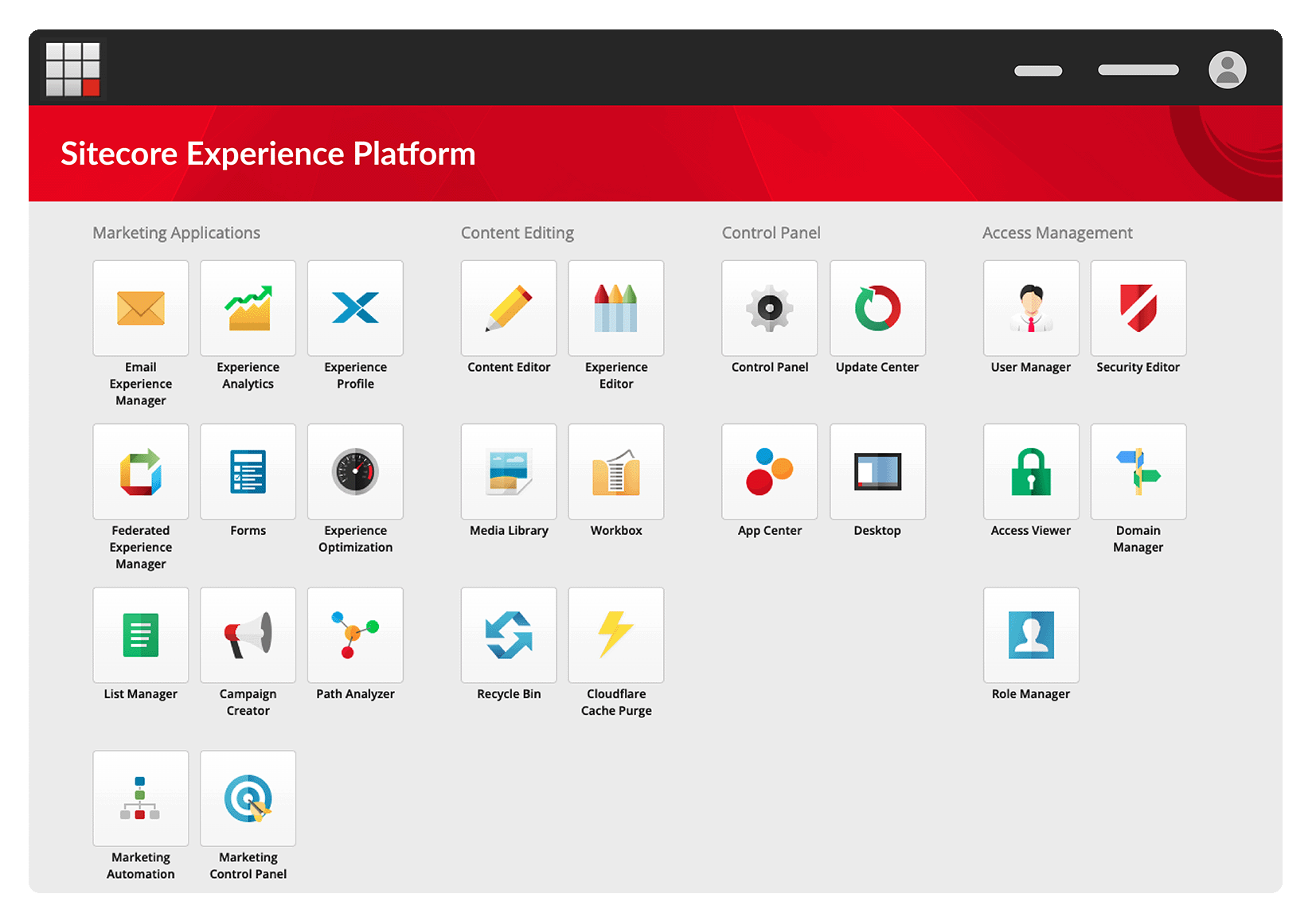
Based on ASP.NET, Sitecore is one of the top enterprise content management systems available. This platform offers content creation for several digital channels, such as Contentful. Compared to other well-known CMS platforms, this adaptable CMS includes more marketing capabilities.
Important Characteristics of Sitecore:
- Customized information. Learn about the interactions and behaviours that users of a website exhibit.
- Automation of marketing. Configure marketing campaigns to react automatically to website users’ actions.
- Analytics of engagement. Prioritize follow-ups by rating and ranking visitor interactions.
Advantages of Sitecore:
- User-friendly and intuitive UI.
- Features that comply with the most recent General Data Protection Regulation (GDPR) and enable greater support for data privacy.
Disadvantages of Sitecore:
- High price compared to alternative CMS solutions.
- Absence of community, updated material, and assistance.
Price:
- The cost is determined by the license, which takes into account concurrent users, non-production installations, visits per month, and add-ons.
9. Umbraco
One of the greatest alternatives to WordPress is Umbraco, an open-source content management system built on the.NET foundation from Microsoft. In contrast to other open-source systems, Umbraco has an enterprise-level support team behind it.
Important Characteristics of Umbraco:
- Grid system design. Feel free to customize components or add content in any configuration.
- Multilingual instrument. Using the editor, create and manage multilingual material.
- Reverse the process. Keep track of updates and review previous iterations of the web material.
Advantages of Umbraco:
- Present material across a wide range of digital channels.
- Security patches to immediately protect the system if a danger has been detected.
Advantages of Umbraco:
- There aren’t many plugins available for more functionality.
- Not a developer community.
Price:
- The open-source CMS has no cost associated with it. But you’ll also need to get a domain name and site hosting. But at $7,500 a year, the Umbraco Professional plan offers discounts on training, support, and licenses.
10. Hubspot CMS

One of the best CMS choices for building a website without the need for frequent revisions and updates is HubSpot CMS. Because this platform’s user-friendly tools make it possible to publish a website without technical experience, it’s ideal for beginners as well. Reach and engagement are additionally raised by its excellent integrated sales and marketing solutions.
Important Characteristics of Hubspot CMS:
- Astute Content. Utilize visitor insights and data to personalize the site’s content and call to action.
- Tool for design managers. A user-friendly drag-and-drop tool to make customization easy.
- SEO: Follow the integrated SEO guidelines to optimize your content.
Advantages of Hubspot CMS:
- Use social media and email to boost engagement.
- Assign a dedicated team to do routine virus scans and round-the-clock platform monitoring to detect and stop assaults.
Disadvantages of Hubspot CMS:
- Restricted theme and plugin gallery.
- Absence of direct technical assistance.
Price:
- The cost of the CMS Hub pricing options ranges from $23//month to $1,200/month.

